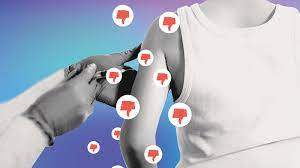Twitter and Facebook to censor vaccine discourse — this must stop

Twitter and Facebook suppressed the Hunter Biden scandal. They controlled what we could say about COVID-19. They stomped on reports of election fraud.
Now, the social media behemoths are deciding what Americans can or cannot read about the new COVID vaccines.
This is unacceptable. It may even be dangerous.
Earlier this month, Facebook promised to remove “false claims about these vaccines that have been debunked by public health experts.” They didn’t specify which public health experts, but said they would “update the claims we remove based on guidance from public health authorities as they learn more...”
Twitter just recently jumped aboard, saying that in 2021, they “may label or place a warning on Tweets that advance unsubstantiated rumors, disputed claims, as well as incomplete or out-of-context information about vaccines.”
In other words, even though the COVID vaccines are new and, by normal standards, untested, these social media firms will not permit naysayers to challenge their effectiveness or safety.
A great many people have reasonable concerns about the vaccine, about its safety and possible side effects. For example, the Food & Drug Administration (FDA) Briefing Documents on the trials of Pfizer and Moderna show that some participants, after taking the vaccine, contracted Bell’s palsy, which causes temporary weakness or paralysis of the facial muscles.
It is unclear whether the vaccine caused the outbreaks of Bell’s palsy, but Dr. Paul Offit, a member of the FDA’s Vaccines Advisory Committee who voted to approve the Pfizer preventative, said in an interview with CNBC that the condition should be monitored. “I’m not dismissing that yet,” he said.
Dr. Peter Marks, director of the FDA’s Center for Biologics Evaluation and Research, said in an interview recently that the agency could quickly determine the prevalence of Bell’s palsy once the vaccines are administered. That’s not reassuring; some younger healthy people might decide they’d rather deal with COVID, which treats their age group relatively kindly, than a disfiguring affliction that can on rare occasions be permanent.
Similarly, the data from Merck’s trial showed that five participants who took the vaccine but none in the placebo group contracted Kawasaki disease, a “statistically significant” occurrence. Again, whether the vaccine had caused the illness was unclear.
These are important facts to put before the American people — facts that might not be circulated in the future as Twitter and Facebook block negative information about the vaccine. The public deserves to know about possible side effects so they can weigh the risks. They deserve transparency, not censorship.
It is understandable that health officials and our government, not to mention the drug companies that have so speedily delivered a much-anticipated vaccine, do not want people dissuaded from taking the preventive shot; it is, after all, the only path to normalcy currently visible.
Also, polling has shown a large number of Americans resistant to the vaccine, perhaps alarmed by the likes of House Speaker Nancy Pelosi (D-Calif.), New York Gov. Andrew Cuomo and Vice President-elect Kamala Harris, who cast doubt on the safety of the inoculation before the election.
In September, a Gallup survey showed that only half the country was willing to take the vaccine; as of December, the percentage overall had climbed to 63 percent. That’s progress.
But let us be clear: Facebook and Twitter know nothing more about the COVID-19 vaccine than the rest of us. They are relying on public health authorities who can be just as misguided and uninformed in dealing with a new disease as the anti-vaxxers they are trying to squelch.
Recall that in March, Twitter announced it would “protect the public conversation & help people find authoritative health information on #Coronavirus / Covid-19.”
Just five days later, Dr. Fauci, director of the National Institute of Allergy and Infectious Diseases, proclaimed on “60 Minutes” that “there’s no reason to be walking around with a mask,” saying that masks don’t provide much protection and that donning one carries “unintended consequences” as people are likely to touch their faces, etc.
Fauci obviously has since changed his position, but in the early days there was much that neither he nor his peers knew about the virus. That didn’t prevent Twitter and Facebook from relying on “authorities” like Fauci, even when they erred.
Recall the medical community’s eruption when President Trump’s waxed enthusiastic about hydroxychloroquine as a possible treatment for COVID-19. Twitter and Facebook blocked information about the possible therapy, even though it had performed well in certain studies and was backed by scores of doctors.
Such was the outcry about Trump’s “dangerous” endorsement of hydroxychloroquine that the FDA, with the support of the American Medical Association (AMA), banned doctors from prescribing the medication, despite copious anecdotal evidence that the therapy worked, especially with newly infected patients, and was safe.
In response, certain states, pharmacy boards and medical organizations prohibited the use of hydroxychloroquine and certain other therapies.
They were all wrong.
The AMA's current position is that the use of these drugs is "a matter for the physician’s or other prescriber’s professional judgment."
How many lives were lost because doctors were not allowed to prescribe hydroxychloroquine? We will never know, but it is possible that thousands of Americans died because of the shutting down of differing viewpoints.
Twitter and Facebook are under increasing pressure to block information and suppress voices that offend one group or another. President Trump insists that the companies should lose their Section 230 protections, and that they be reclassified as publishers. The more they censor what the public sees, the stronger is his case.
In any event, all Americans should be alarmed that these giant firms are acting as judge and jury on enormously important issues, like our health or our elections. They must not be allowed to control our information, nor our country. Today, they are doing both.
Photo and link: https://thehill.com/opinion/healthcare/531091-twitter-and-facebook-to-censor-vaccine-discourse-this-must-stop




